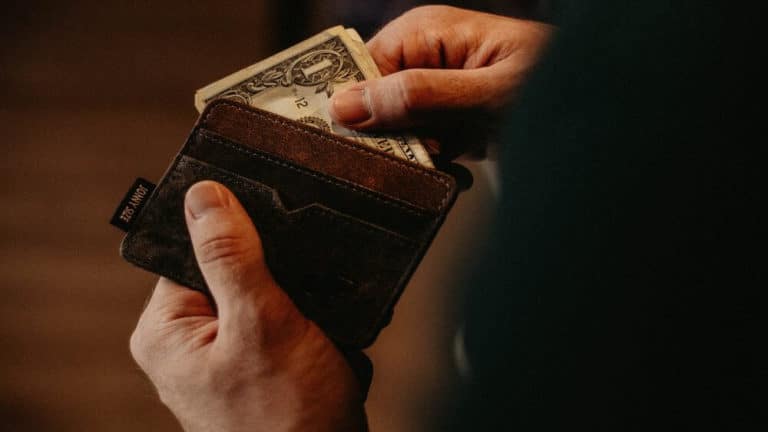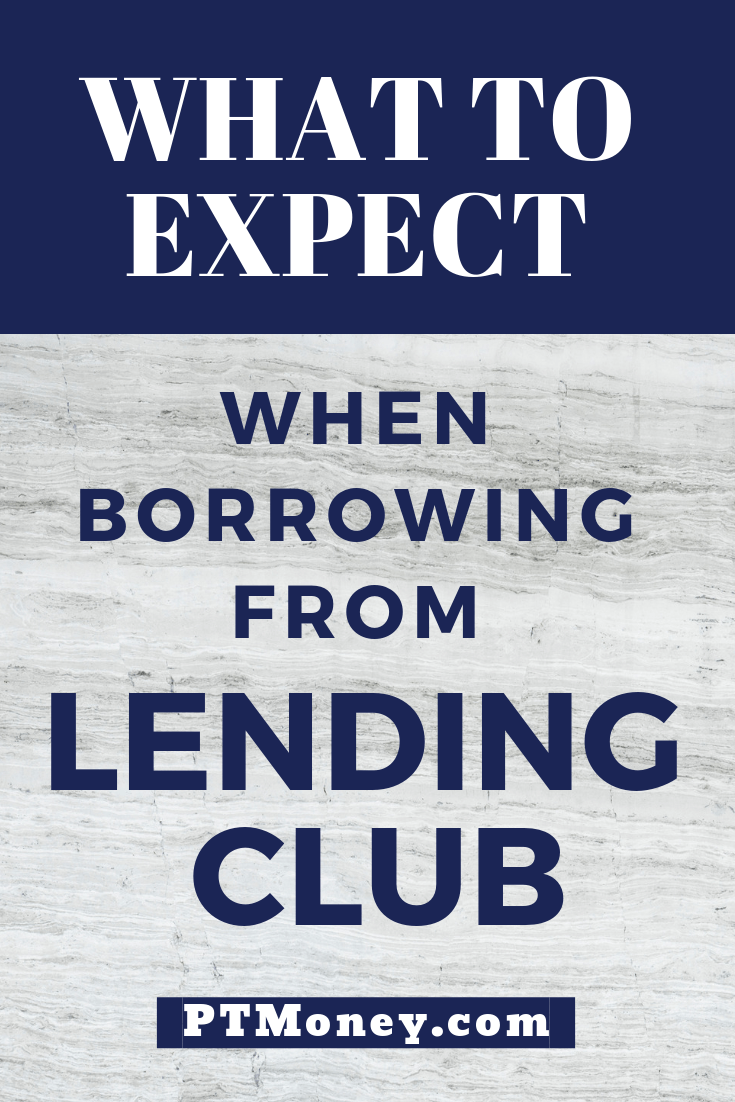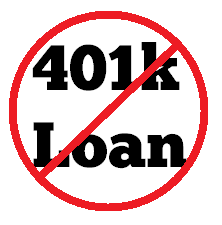How to Pay Off Debt for Good

If you’re wondering how to pay off debt and get your life back, you’re not alone.
According to a study by Northwestern Mutual, one in ten Americans say they will be in debt for the rest of their lives. However, the reality is much worse. Data from credit bureau Experian shows that 73 percent of consumers had outstanding debt at the time of their death.
While carrying debt may seem like a fact of adult life, it doesn’t have to be that way. There are steps you can take to reduce your debt load and pay off your loans.
Keep in mind that getting rid of your debt won’t happen overnight. It took you years to get in debt, and it’s going to take you some time to pay it all off. The most important part is to commit yourself to the process.
Why You Should Limit Your Debt
Debt can feel like a weight around your shoulders that drags you down and affects every part of your life. It can limit your career opportunities and cause you to make certain decisions because you need money to keep paying your debt.
When you pay off your debt, you’re free to use your money however you chose. You have the option to take a job because you want to and not because you need it to pay your debt.
There’s no need to worry if you have enough money until next payday or if you can make all of your payments on time. Don’t let debt run your life. Commit to pay it off and get your life back.
Strategies for How to Pay Off Debt
Looking for strategies on how to pay off debt? We’ve got you covered. What approach you chose depends in part on how much debt you have and what type. Each strategy has its benefits and drawbacks so chose the one that works best for you – financially and psychologically.
Debt Snowball
The debt snowball, made popular by Dave Ramsey, requires that you order your debts from smallest to largest balance. It ignores the interest rate and instead focuses on the total amount of each debt.
To start your debt snowball, you make minimum payments on all of your debts except for your smallest balance. Throw all extra money toward your smallest debt until it’s completely paid off. If the debts have the same balance, start with the one with the highest interest.
Related: Who is this Dave Ramsey Guy?
Once you’ve paid off your smallest balance, move to your next smallest balance. Put all extra money toward paying this debt off, including the payments you were making on the debt you just paid off. Make sure you’re still making minimum payments on your other debts.
This strategy focuses on paying your debt one balance at a time. Getting your smallest balance knocked out first gives you a quick win and a psychological boost to keep going.
Debt Avalanche
The debt avalanche, on the other hand, requires that you order you debt from highest to lowest interest rate. Similar to the debt snowball, you’ll be paying off one balance at a time. However, the payments should be focused on the debt with the highest interest rate.
Continue to make minimum payments on all other debt while throwing all extra money toward your highest interest debt. This means you’ll pay less interest in the long term and you’ll pay off your debt faster.
Keep in mind that if your debt with the highest interest rate has a large balance, getting it knocked out may take a while. It’s important to stay motivated and continue making extra payments as you work on reducing your debt load.
Debt Consolidation
Another way to pay off debt that you may want to consider is debt consolidation. This strategy rolls multiple old debts into a single new one at a (hopefully) lower interest rate. Doing this usually shortens the payoff period and makes payments more manageable.
There are a few options for debt consolidation so which one you chose depends on several factors. One way is to open a card with zero percent introductory offer and move all debt there.
This requires that you stay on top of the terms of the offer and pay off the balance in full before the promotional period expires. You also need to make sure not to run up any new debt during the payoff process.
Another option is to take out a personal loan that can help you consolidate all debt into one single monthly payment. Just make sure you review the terms of the personal loan to ensure they’re favorable and will actually move your debt repayment strategy forward. Compare interest rates for a personal loan from top lenders by checking out Fiona.
Related: Improve Your Credit Score with Our Ultimate Guide to Credit
Debt Management Plan
Do you have a mountain of credit card debt? A debt management plan can help you make progress. There are many non-profit credit counseling agencies that can help you regain control of your debt.
They’ll work with you on a repayment plan and may be able to lower your interest rate. Having someone else help you through the debt payoff process can be a great motivation.
How to Pay Off Debt Using a Budget
The best way to stay on track with your debt repayment plan is to create a budget. While budgets get a bad reputation, they’re really just a spending plan. They let you tell your money where you to rather than the other way around.
You’ll need to gather all of your transactions for the last 30 to 90 days. Comb through your statements and group your expenses by category. This will give you the basis for your first budget.
Related: How I Use Excel to Manage My Family’s Budget (Free Download)
Make sure you include expenses that you pay quarterly, semi-annually or annually. Some examples include auto insurance, home insurance, HOA dues, annual subscription services, and so on.
Once you have a rough idea of your spending in each category, look for ways to cut back in certain areas. Use the extra cash to pay down your debt faster.
There are many different ways to stay on top of your budget. Check out this post for details on the best personal finance budget software to help you get started.
What is the Best Way to Pay Off Debt?
If you’re wondering how to pay off debt the best way, it all depends on how much you owe and what resources you have. However, there are steps you can take to get yourself on the right path to success.
Step 0: Save a Mini Emergency Fund
While this is not the official first step in the “how to pay off debt” process, it’s an important one. If you don’t have at least a mini emergency fund in place, you’re going to take one step forward and two steps back.
Here’s why: life happens. Your car may break down, you may have a leak in your kitchen, your child breaks his arm, you need some dental work, etc. If you don’t have an emergency fund, these expenses are going to end up on a credit card, sinking you further into debt.
To avoid this exact situation, save up an emergency fund with $1,000 to $2,000, which should cover most unexpected expenses. If you end up needing to use money from your fund, build it back up as quickly as possible.
Step 1: Know Exactly What Debts You Have
Step one of how to pay off debt is to fully understand your debt situation. Take an hour out of your next evening to break out your latest credit card statements, auto loan statements, student loan statements, etc. Or, if you use a program like Empower to simply link all of your online debt accounts.
However you do it, just make sure you fully understand your debts and the full balance of each one. If you think you might have some old, forgotten debts out there, you may want to get your free credit report from AnnualCreditReport.com.
Step 2: Prioritize Your Debts
Now that you understand your debt situation, step two is to apply some type of priority or ranking to the list. For me, the priority is placed on the interest rate.
That may not be the case for you. And really, it makes very little difference. The important part is to pick the debt you are most motivated to pay off. Motivation is the most important part.
Related: How to Prioritize Your Debts for Payoff
Therefore, I’m motivated to stop paying so much out every month in interest charges. My auto loan is somewhere around 8%. Whereas my home mortgage and student loan debts are a bit lower and are also tax deductible.
Pick one of the four repayment strategies–debt snowball, debt avalanche, debt consolidation, or a debt management plan–and stick with it.
Step 3: Establish a Debt Payoff Plan
Step three is to set up a payment plan based on your newly established priority ranking. You may want to put all your extra money every month towards the debt with the highest priority, or you may simply want to make double payments on that debt.
Choose the method that’s right for you and your budget. Make sure you at least make the minimum payments on the other remaining debts. If you’re committed to attacking your debt and paying it off quickly, consider picking up a side gig.
There are many different options for making money on the side. Any extra money that you can throw toward your debt will expedite the payoff process.
Step 4: Make Debt Payments Automatic
The fourth step is a key one for me. Make the extra effort to set up an automatic payment from your bank account to pay off your debts. Taking the time to set up an auto payment will help to ensure the extra payments get made.
When scheduling the automatic payment, timing is critical. Schedule the withdraw for a time when you know you’ll have money in your account, such as the day after payday. This ensures that you don’t overdraw the account and that you prioritize paying off your debt.
Step 5: Track Your Progress
Staying motivated through the pay off process is critical to your success. Motivation is not constant–instead, it comes and goes. Some days you’re ready to do whatever it takes to pay off all debts and be free.
Other days you convince yourself that there’s no point to doing this since you’ll never be out of debt. One way to stay motivated is to track your progress. When you see how far you’ve come, it makes it easier to keep pushing forward.
Take the sheet where you wrote out all of your debt and organized it in whatever order works best for you. Put it up on your fridge and cross off each debt as you pay it off. Another great visual reminder is to draw a giant thermometer and fill it in as you pay off each $1,000 or $2,000 of your debt.
An accountability partner can also go a long way towards helping you stay on track.
How to Pay Off Debt For Good–the Bottom Line
The secret for how to pay off debt for good is to make a plan and stick with it. There will always be ups and downs but staying the course is what will set you free in the end. Don’t let the amount of debt bring you down and run your life.
Remind yourself that getting out of debt means freedom. When you no longer owe money to anyone, you are free to make decisions based on your values rather than a paycheck. Having less debt can help you make financial moves such as having one parent stay at home or starting your own business.
Do you have any other suggestions for how to pay off debt in the new year? If so, leave them in the comments below.






Having a good plan for reducing your existing debt is a good thing. Planning not to increase your debt is another. Often, when someone determines that they can pay an extra $50 to $100 a month to reduce their debt, they fail to realize that they are still increasing their debt each month by $200 to $300. Additionally, some people who start reducing their debt will get that feeling of success, especially once their nest egg starts to grow, and decide to celebrate and spend that nest egg on something frivolous. I suggest making two lists: “Things I Need” and “Things I Want”. The “Needs” list should contain your monthly bills, mortgage/rent, car payment, groceries, and everything associated with your debt reduction plan. Each item on this list should also include the monthly payment and a total at the end. This list should also include an item called “Pay Yourself First”. The “Pay Yourself First” entry is the amount of money you can comfortable add to your nest egg, after you have met your obligations, and still achieve the goals you’ve set in your debt reduction plan. The goal for this nest egg should be to build it up to approximately three times your monthly income. It will take some time. The idea is that if you lose your job you will have about three months to find another one. The time frame to find a new job increases if you will be eligible for unemployment or you can adjust your debt reduction plan a bit. The “Wants” list might include that new flat screen TV, or that new fangled iThingy, or a new computer. Include how much each item costs, and then consider if that cost will go down in the future. If an item on your “Wants” list replaces something you already have, will the item you have suffice until you can afford to buy the one you want. The cost of electronics almost always goes down over time, so wait and save. If your “Wants” list includes a new car, consider how much you are currently spending on your vehicle. Are you still making payments, is the gas mileage really poor, are you “paying through the nose” just to keep it running? Will the new car payment be more or less than you are currently spending?
A huge thing to keep in mind while you’re trying to pay off debt is the transaction/pay date/or whatever the bank/creditor your paying calls it. What I mean is that there is usually a pay data box to select the date you’re paying on. If your payment is due on the 15th, this box is usually set as the 15th. The tricky thing here is that if you’re making your payment on the 10th you avoid interest for the next 4 or 5 days but if the box is already pre-filled with the 15th that makes you think that this is the only date you can pick therefore your transaction will be on time but you will be charged the interest although you paid early. Be sure to select the date you are paying on or the next day. This is something that Bank of America does (which I think they are crooks and are super greedy bank, even if some people disagree, my personal opinion) so keep an eye out for your creditor doing the same thing, you think your avoiding interest but in reality the bank is setting you up to pay up either way……
It’s good to pay extra on an automobile loan. One thing to remember/check a lot of contracts state a payment must be made every 30 days.So when you pay more then your min. payment you pay less in interest and pay the loan off faster. This does not mean that if one month you are short on the payment that you are okay. Read the fine print.
Paying off debt is a huge deal and I think the strategies in this article and subsequent posts are excellent!
Here’s one I’ve used with great success: played “right”, every month you’ll have a certain amount that you could use to pay off debt. I advocate saving half that amount and using the other half to pay down debt.
Why? This way if something untoward happens (like you get layed off or your hours get reduced), you’re prepared.
After a rough spot, I landed a great job and diligently started paying off debt, living on the very minimal amount that I could manage. About 14 months in, I was very close to being out of debt and **wham** my employer merged, I was “redundant” and lost my job. I had no savings (as I’d been using every penny to pay off debt) and so, to bridge the gap between actual living costs and unemployment, guess what? Yup – HAD to borrow to survive.
Now that I’ve got another gig, I am again paying back at a good rate BUT this time for every dollar I pay back, I save a dollar – just in case…..
I’m a big fan of the automatic payments for my minimum payments (they all go out on the 30th, come hell or high water), but I send my extra payments as they come in. So, $100 comes in and $100 goes right out to the debt. I’m not a “lump sum” kind of guy.
Some really good debt free advice here. The sooner that debt problems are tackled then the closer you are to becoming debt free.
For UK resident (except Scotland), there is Government help with allows you to become debt free in as little as 60 months, which is know as an IVA.
I understand the ‘paying off the smallest first thing’. If a person has five credit cards they may feel overwhelmed, and feel as if they can never accomplish being debt free.
If they pay off the four smallest, and are left with the largest then the task seems much more doable, and inspires them to keep going.
My grandma just went through all her receipts for the entire year (Yes, she saved them ALL.) I’m thinking she’s going to have a heart attack when she figures out exactly how much money she spends on ‘little things’.
I always made sure I paid some ‘extra on my car payment’ so much so that I didn’t technically “owe a payment” for about six months.
Every little bit helps! Even if you only have $50 extra that month eventually it could put you so far ahead that if you’re accidentally a little short in the future it won’t matter. : )
Automatic payments plans are huge because it takes the human error out of you forgetting to make a payment.
I agree 100% w/ J’s statement to round your payment up, even if it is $10. It will pay off big time over time.
I want 2009 to be the year I totally forget about credit cards, build up a small liquid emergency fund, and, most importantly, knock of a huge amount of principle from my student loan debt.
It starts this Friday w/ my first pay period!! Great work PT Money, great way to start the year off!
Instead of finding an actual person as a partner you can also use the internet to keep you accountable. For one, you can blog about your finances. That will give you an incentive to do the right thing. You can also decide to stick to a budget. (There are plenty of free budget planners available on the internet.) And finally, you can sign up at stickk.com where you can be your own partner and hold yourself accountable to your commitments. (The site was developed by Yale professors and I have no commercial interest in it.)
1. Round up. Take you car payment, mortgage payment, any set monthly payment and round up to the next nearest even-dollar amount you are comfortable with. Example: if your car payment is $249.50, set it for autopayment at $260. Over time, your required payment drops, the extra gets the car paid sooner, and you can drop it down if you have to for something like a house down payment. I plan to do the same with my mortgage as soon as I can.
2. Try to pay car/house insurance in one payment. Most insurance companies now charge a monthly fee for every month it’s not paid in full – mine was $5/month. Over 10 months, thats $50 I have better uses for. Look at the interest you gained in a savings account and see how it stacks up against this extra fee. Besides being one of my 2008 goals I achieved, it adds piece of mind that I won’t forget to pay it.
3. Kill student loans. I can’t emphasize this enough. Interest may be tax-deductable, but because it is amoritized and compounded daily, it’s akin to mafia loan-sharks. Don’t let other things like car and house slip, but compared to credit card double-cycle billing for profiteering, the DOE is just plain mean.
4. When budgeting, round down your income. By shaving $50 off your expected weekly (or $100 for bi-weekly) pay, and then building your budget from those figures, you automatically have some left over. This comes in handy for sudden car repairs, replacing a suddenly-dead coffemaker, or other little life always throws at you.
To the poster above: I do something similar except I use an excel spreadsheet instead of a whiteboard. Its amazing how fast you can make progress when you track it correctly.
I agree that staying accountable is a big deal!
But something that keeps us both sane and self-aware? A whiteboard. Every time I make a payment, I change the tallies. This way we both see that we still have a way to go — the amount is staring us in the face — but we also get to see the number go down. It can really be a nice thing.
Also, I suggest making payments with each check, rather than once a month. First of all, if you’re on a double-billing cycle (and most people in credit card debt are) the daily total will go down more quickly, thus you’ll accrue less interest. But important to the psyche: You’ll get to take those totals down a notch more often. It reminds you to celebrate your progress. And it keeps you checking your money scenario — how much you spent this week via how much you have left to put toward the debt — far more frequently.
It’s really helped for us! On a $3,000/month total income, we’ve paid down $4,000 since mid-June. We’re down under $10,000 and looking forward to slashing even more in the coming year!
One thing I want to add is that when finding a partner to hold you accountable you should look for someone that will not judge. The reason I say this is because in the past I’ve had workout partners or study partners that will judge when you make a small mistake. Mistakes will happen but when they do I want someone to motivate me to improve myself or to learn from my mistakes, not to judge me.